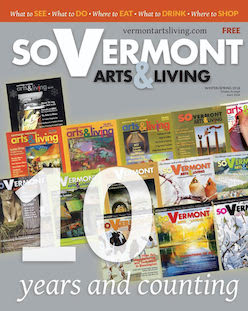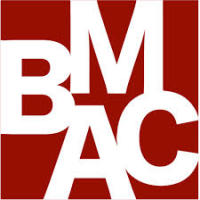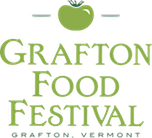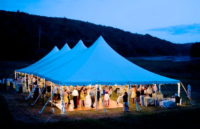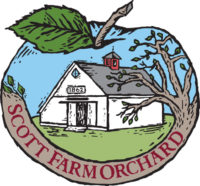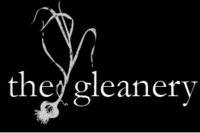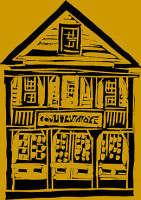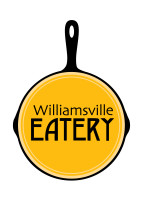Community Supported Restaurants
Community Supported Restaurants: The Gleanery in Putney and Popolo in Bellows Falls
By Katherine P. Cox
 Community Supported Agriculture (CSA) has become an ingrained part of our culture as more and more people embrace the notion of supporting local farmers and buying fresh, healthy, local food. Now an intrepid group in Putney has applied that model to its new restaurant, The Gleanery, scheduled to open in October. Likewise, a trio in Bellows Falls had adapted the community support concept at its restaurant, Popolo, in the former Windham Hotel.
Community Supported Agriculture (CSA) has become an ingrained part of our culture as more and more people embrace the notion of supporting local farmers and buying fresh, healthy, local food. Now an intrepid group in Putney has applied that model to its new restaurant, The Gleanery, scheduled to open in October. Likewise, a trio in Bellows Falls had adapted the community support concept at its restaurant, Popolo, in the former Windham Hotel.
The financing models are slightly different, as are the cuisines, but the spirit behind the enterprises is the same: a restaurant in which local citizens have not just a financial investment, but an emotional connection as well. It’s taking the local movement to another level, boosting the area economies by hiring local employees, working with regional farms to provide them a consistent source of revenue, using area vendors and tradespeople, and providing diners an opportunity to support a local enterprise.
 At Popolo, which opened in May, the idea was hatched in February 2011 by Gary Smith, Kristen Fehrenbach and John-Michael Maciejewski, the three directors. Smith, a music producer experienced in “putting things together,” as he says, assumed the role of general manager; Fehrenbach, with decades of experience in restaurants, is the front-of-house manager; and Maciejewski is the chef. Combining their talents, they drew up an 80-page prospectus and sought out investors.
At Popolo, which opened in May, the idea was hatched in February 2011 by Gary Smith, Kristen Fehrenbach and John-Michael Maciejewski, the three directors. Smith, a music producer experienced in “putting things together,” as he says, assumed the role of general manager; Fehrenbach, with decades of experience in restaurants, is the front-of-house manager; and Maciejewski is the chef. Combining their talents, they drew up an 80-page prospectus and sought out investors.
“Investment was by invitation only,” Smith says, “and we built a like-minded team through a combination of cold hard facts about the reality of restaurant investment and a well-researched analysis of dining opportunities and audience in our region.” Shares were $500 each and a minimum commitment of 10 shares was required to participate. There are currently 25 stockholders, with the three directors controlling more than half of the shares. “People who believed this was a good idea for our region put their money where their mouths are and raised a few hundred thousand dollars to see it through. Consequently, we started without debt and are not beholden to lenders,” Smith says.
 The folks behind The Gleanery – Elizabeth Ehrenberg, Ismail Samad and Alice James – chose a different approach to raising money that included their own equity, membership shares, traded skills (such as financial advice, architectural design, and carpentry), individual gifts and a $5,000 award from the annual Strolling of the Heifers and the Brattleboro Development Credit Corporation business plan competition. “People are excited about the concept, especially one that is committed to working with local communities,” says Ehrenberg, a Putney native. People get to invest in their own neighborhood, Samad says, and the risk is smaller when spread over a wider group. “This is about us controlling what goes into our community,” he says. And Putney is the ideal place to do this, Ehrenbach says. “This is such an ideal place; people are open to this idea. It’s the right time and place. In Southern California people wouldn’t get it.”
The folks behind The Gleanery – Elizabeth Ehrenberg, Ismail Samad and Alice James – chose a different approach to raising money that included their own equity, membership shares, traded skills (such as financial advice, architectural design, and carpentry), individual gifts and a $5,000 award from the annual Strolling of the Heifers and the Brattleboro Development Credit Corporation business plan competition. “People are excited about the concept, especially one that is committed to working with local communities,” says Ehrenberg, a Putney native. People get to invest in their own neighborhood, Samad says, and the risk is smaller when spread over a wider group. “This is about us controlling what goes into our community,” he says. And Putney is the ideal place to do this, Ehrenbach says. “This is such an ideal place; people are open to this idea. It’s the right time and place. In Southern California people wouldn’t get it.”
 At The Gleanery, farm-to-table is not a goal; it’s a firm commitment that all their food is locally sourced and even the furnishings and plates, for example, are made locally. They work with a wide array of farmers who provide produce, meat, eggs, dairy products, even rice, and have encouraged some farmers to diversify their offerings. Looking for local duck and mushrooms, for example, they inspired local producers to raise these products, which are now available to the public, as well. “If we can create a demand and a market, we want to do it,” says James. It’s about talking directly to the farm owners and building relationships, she says. “How can I help you and how can you help me?”
At The Gleanery, farm-to-table is not a goal; it’s a firm commitment that all their food is locally sourced and even the furnishings and plates, for example, are made locally. They work with a wide array of farmers who provide produce, meat, eggs, dairy products, even rice, and have encouraged some farmers to diversify their offerings. Looking for local duck and mushrooms, for example, they inspired local producers to raise these products, which are now available to the public, as well. “If we can create a demand and a market, we want to do it,” says James. It’s about talking directly to the farm owners and building relationships, she says. “How can I help you and how can you help me?”
The main dining room seats 40, and there is a smaller café area which serves coffee, baked goods, prepared foods to go, a variety of canned and preserved foods, sauces and condiments. The Gleanery team brings broad experience and distinctive talents to their operation, but “we all do a little bit of everything,” says Ehrenberg, who primarily takes care of the business end of The Gleanery as well as front-of-house operations. She has an extensive background in restaurant management. After several years working in Southern California, she returned to Vermont in 2009 and met James and Samad while they were all working at The Putney Inn. Alice James has a degree in sustainable agriculture and has been a chef at the Vermont Farm and Wilderness Center. “I know how to work with farms to make it work,” she says. She worked in the kitchen at The Putney Inn with Samad before he left to be chef at the Farm and Fork Restaurant at the Wilmington Inn. Before moving to Vermont four years ago he worked in acclaimed restaurants in Cleveland and New York. “In Vermont, working directly with farms was new to me. I began to see how things could change: make good food and support farms in a better way.” Samad promises a different dining experience in Putney – “interesting and awesome food,” he says, bringing a “perfect mix of Vermont raw foods to the refined palette.”
 Most of the food at Popolo is also locally sourced, although some products come from Italy, as befitting an Italian restaurant. “We call the food at Popolo ‘Italian-inspired farm-to-table.’ What we’re trying to do is bring local producers and consumers together,” Smith says. “The menu is a work in progress, depending on the season. John-Michael does a simple style of cooking, but he brings a refined balance of flavors to his craft. The specials are pretty special – salmon in parchment paper, lobster risotto, lemon and basil pizza – but they aren’t trendy or esoteric.” Everything is fresh, Smith says. Maciejewski makes his own sausages and sauces and even cures his own olives. He makes provisioning decisions based on several criteria, Smith says: “Is it local, is it organic, how’s the quality, is the supply adequate and can we afford it?”
Most of the food at Popolo is also locally sourced, although some products come from Italy, as befitting an Italian restaurant. “We call the food at Popolo ‘Italian-inspired farm-to-table.’ What we’re trying to do is bring local producers and consumers together,” Smith says. “The menu is a work in progress, depending on the season. John-Michael does a simple style of cooking, but he brings a refined balance of flavors to his craft. The specials are pretty special – salmon in parchment paper, lobster risotto, lemon and basil pizza – but they aren’t trendy or esoteric.” Everything is fresh, Smith says. Maciejewski makes his own sausages and sauces and even cures his own olives. He makes provisioning decisions based on several criteria, Smith says: “Is it local, is it organic, how’s the quality, is the supply adequate and can we afford it?”
At The Gleanery, cost, quality and affordability are also the guiding principles. In the café, no items are more than $14; the entrees run from $16 to $28. At Popolo, which seats 75 in the main dining room, “our prices are affordable with small plates ranging from $5 to $10 and our most expensive specials running to $28.” The wine list, Smith says, is “small and inspiring and offers value, interest, cool vineyards, diversity, and harmony with the menu.” Fehrenbach says the wines are 75 percent Italian and “not wines you’d find in a grocery store. We really went for an unusual wine list. It’s very special but affordable and focused on the menu. We make sure the wines pair with the dishes.” At The Gleanery, it’s bring-your-own; they don’t have a liquor license, but diners are welcome to bring their own wine and beer.
Both restaurants have more than good food on the menu; an assortment of events are planned to make the restaurants community gathering spots as well. Classes such as pasta-making, butchering, fermenting, and cooking without gadgets are planned at The Gleanery, as well as book clubs, presentations, musical performances and even art classes.
Popolo will use the adjacent Windham Hotel lobby and back rooms for readings, speakers, ballroom and salsa dances, and musical performances, among other, things. “There are so many things we can do,” Smith said. “In the fall I think people will enjoy cocktails in the hotel lobby seated by the big fireplace. The Windham Hotel is on the National Register of Historic Places and we are very fortunate to have such an elegant and flexible facility in which to bring our community out for fun.”
Eherenberg, who has run other people’s restaurants, says, “I never thought I’d run my own restaurant; it’s so much work, it’s risky. But here, having a three-person team means running it will be shared. All the ways we want to make it more than a restaurant will keep it challenging.”
For Smith, too, it’s more than a restaurant. “It’s a third space; not home, not work,” he says. “It’s about belonging with other people somewhere that’s not home. Popolo is just a vehicle for belonging; for people to get together. It feels really alive in here. People let their hair down here. It’s really a cool thing.”
More importantly, he says, “We are providing an anchor at what was the dark end of the street, figuratively and literally. The lights are on in Bellows Falls and our investors – most of them, anyway – are the immediate beneficiaries of this change. This is the beauty of local investment. Its impact is visible within seconds.”




